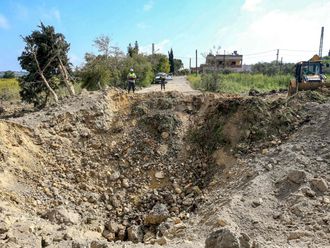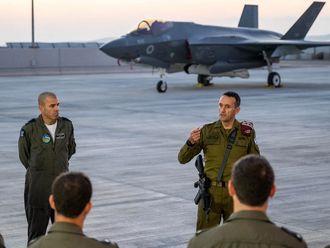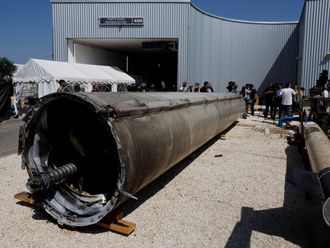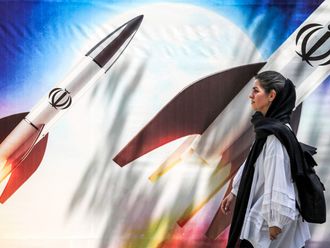Beirut: A day after Michel Aoun told an Egyptian newspaper that Hezbollah’s weapons did “not contradict with the [authority of the] State,” the Lebanese President appeared to backtrack by insisting that the party will comply with the National Defence Strategy, even if one is yet to be adopted.
Though Aoun “guaranteed” that Hezbollah would not “turn its arms inward,” as it had in the past, he warned that there was no reason to add fuel to the controversial fire. His interview with Egyptian media outlets raised eyebrows, however, as the Phalange Party, a key actor on the local scene, categorically rejected the head-of-state’s interpretations.
An official Phalange statement maintained that “all weapons outside the legal institutions are in contradiction with the planned construction of the State, legally and constitutionally”. It added: “Only the army and law enforcement must be responsible for defending the country,” stressing the importance of respecting all international resolutions on the subject, including 1559 and 1701.
Aoun’s comments elicited a reaction from the UN representative in Lebanon, Sigrid Kaag, who tweeted the international repercussions of such a position in words that upset some: “Reminder of the Security Council resolution 1701, vital to the stability and security of Lebanon. This resolution calls for the disarmament of all armed groups. No weapons beyond the control of the State,” she wrote.
Other officials were equally livid, with the Minister of Labour Mohammad Kabbara (Future Movement) clarifying that the 2006 memorandum of understanding between Aoun and Hassan Nasrallah will not be transferred to Baabda Palace.
Another Future Movement parliamentarian, Amine Wehbé, opined that the president’s position “weakens the national sovereignty and the neutrality of the presidency and consequently reduces the scope of the sacrifices of the army, courage and efficiency”.
Shaken by the level of criticisms, the president quickly fell back on a nuanced reply, clarifying that he would not allow anyone to stand above the State. He advanced the notion that Hezbollah arms would be subject to the National Defence Strategy, though one is yet to be adopted.
Aoun was a participant in the endless roundtables among elites to discuss the adoption of such a blueprint, even if the previous president’s efforts came to naught. Michel Sleiman probably devoted more time to this subject than any other leader between 2008 and 2014, all to draft a defence strategy over Israeli threats, terrorism dangers and the spread of illegal weapons in the country, though he failed to reach consensus before he left office.
Suleiman laboured tirelessly to persuade the political establishment that a defence strategy that relies on the Lebanese Army is a must; that strengthening the armed forces was overdue; and that Hezbollah’s weapons must be surrendered to the sole legitimate military institution in the country.
The last time when the Lebanese Parliament acted on a defence matter was in March 1979, when a defence law was adopted. That initiative reorganised the command structure of the armed forces, created the Supreme Defence Council, which consists of the president of the republic as chairman, the prime minister as vice-chairman, and the deputy prime minister and the ministers of defence, foreign affairs, interior, and finance as members, and invited the commander of the armed forces to attend Supreme Defence Council meetings in an advisory capacity.
Aoun told Egyptian television that “Lebanon, relative to its surroundings in terms of both human and economic power, is incapable of building a military force capable of confronting the enemy.” Many Lebanese disagreed, perceiving the real challenge coming from Hezbollah, which is in no hurry to surrender its weapons to the State.












